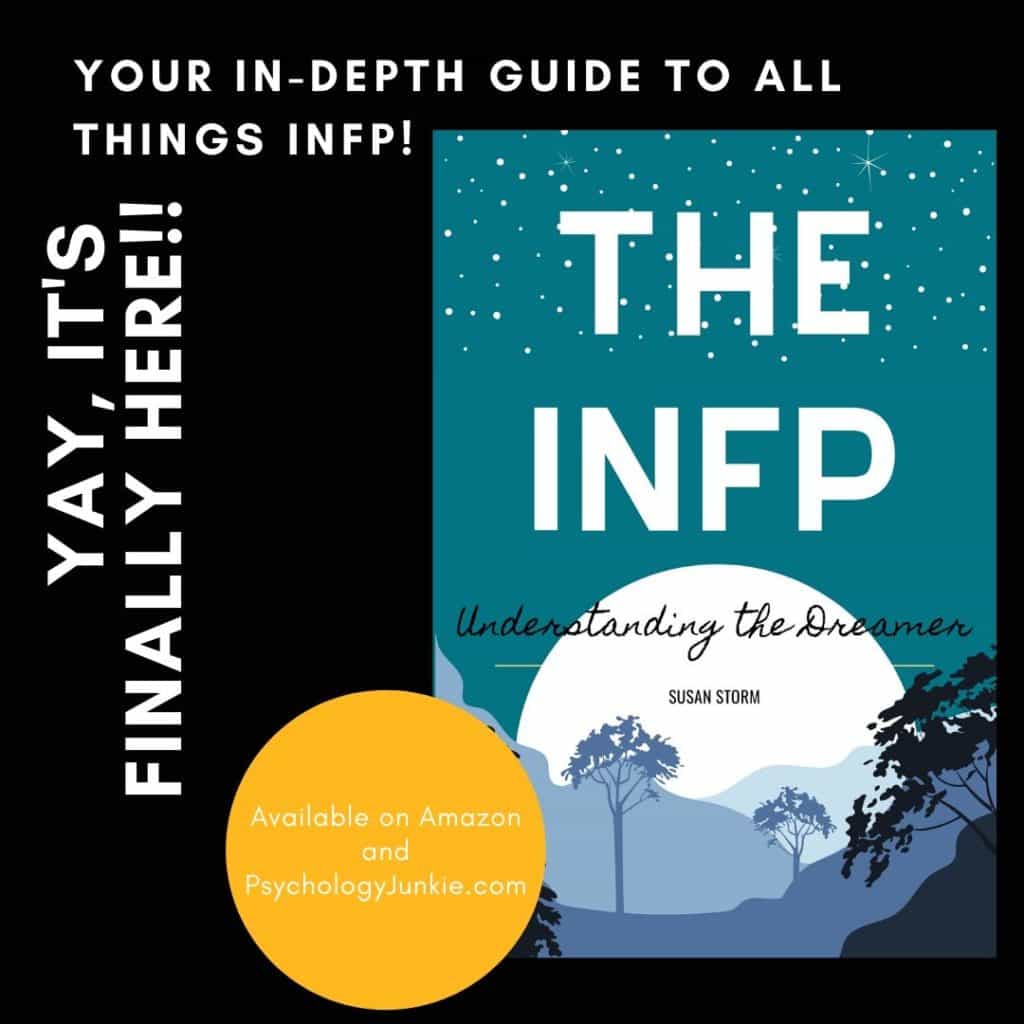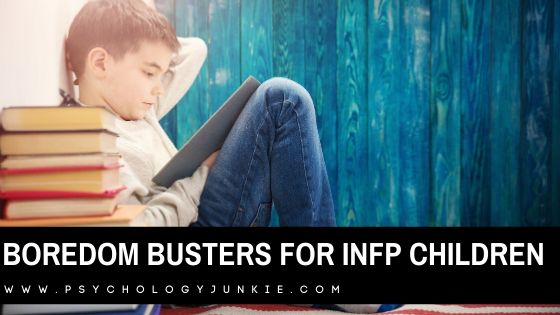Here’s Why INFPs and INTPs Get Misunderstood
Two of the personality types that I see getting misrepresented or misunderstood over and over again are the INTP and INFP personality types. These types are frequently underestimated or given one-dimensional descriptions that don’t do them justice. Why are these types so frequently misunderstood? That’s what I hope to explain in this article, and if you have any thoughts about this be sure to mention them in the comments!
Not sure what your personality type is? Take our new personality questionnaire here. Or you can take the official MBTI® here.

Why INFPs and INTPs Get Misunderstood
Both INFPs and INTPs have some major differences. INFPs are dominant feeling types and INTPs are dominant thinking types. However, there are some very particular preferences and functions that these two types share, let’s take a look:
INFPs and INTPs are both introverted judging types
“Wait!” you might be thinking, “but aren’t they perceivers? They don’t have a J at the end of their type code!”. This is where the Myers-Briggs theory gets a little confusing. To avoid confusion, I’m going to give you some brief pointers about personality theory before we begin.
Judging processes are what we use when we make decisions. Thinking and feeling are judging processes.
Perceiving processes are what we use when we gather information. Sensing and intuition are perceiving processes.
The J or P at the end of your type code tells us which function is the first one that you extravert, not which function is your dominant (favorite) function.
So the “P” at the end of your type code is essentially saying, “Hey! This type extraverts intuition or sensing, so they’re going to have a more adaptable, spontaneous approach to their environment”. If you have a J at the end of your type code it’s saying, “Hey! This type extraverts judging, so they’re going to have a more structured, methodical way of relating to their environment.”
You can find out more about this here.
IP personality types are dominant judging types who extravert a perceiving process (intuition or sensing).
IJ personality types are dominant perceiving types who extravert a judging process (thinking or feeling).
But what does this have to do with being misunderstood?
Because INPs both introvert their decision-making process, many people are confused by their actions and decisions. INPs don’t seek external guidance for their decisions as much as internal guidance and congruency. So outside rules, standards, and expectations are less important to them than their own inner standards.
For the INFP, social expectations and social norms mean very little. The important thing is staying true to their authentic, core values which are intensely personal.
For the INTP, empirical truths and external rules mean very little. Everything must be questioned based on a highly-detailed set of internal principles and truths.
The decision-making process of INPs is often invisible to the eye.
While FJs and TJs look for some kind of consensus to form their judgments and decisions, FPs and TPs look inside to a subjective standard. This tends to show up in school – INPs tend to care much less about grades and meeting external milestones than other types. They are more concerned with meeting their own standards than the standards their teachers or their communities have placed on them. This tends to get them misrepresented as “lazy”, and many times their intelligence is underestimated.
In contrast to how they are perceived, both types are usually on the intelligent side. According to the MBTI® Manual, INTPs and INFPs are two of three types with the highest IQ scores. They are also statistically the two types with the highest SAT-V scores. Both types enjoy the subject of art in school and are usually creative. Unfortunately, this tends to backfire in very traditional schools where art and creativity are given second place to test scores and memorization.
Because INPs don’t usually run their decisions by others for outside approval they can be unfairly seen as inconsiderate. Because they don’t tend to analyze their decisions based on external expectations their choices tend to come as a surprise to many people. While an ESTJ would verbalize their thinking and decisions and might seek outside input, an INP might suddenly blurt out that they’ve made a big decision right as they are about to do it. This “surprise attack” is usually unintentional. They just don’t naturally “talk out” their decisions like J types are more apt to do. They don’t feel a compulsion to get other people’s input on what they are going to do because they judge their decisions by a subjective standard.
INP Intuition
What INPs do vocalize are their ideas and the random connections they see in the world around them. They ask why, play devil’s advocate, and look for core motives (INFPs) or accuracy (INTP). Potential is always something they seek. They’re curious and they enjoy discussing theoretical, abstract topics like philosophy, psychology, art, math, or any number of conceptual or creative ideas. They like looking at things from unusual angles and enjoy thinking outside-the-box. This can sometimes get them in trouble or inadvertently cause them to offend others. “Why are you questioning our traditions?”, “Why can’t you just go along with what’s normal?”, “Why do you ask so many questions?“. These kinds of statements are often the bane of the INPs existence. They are often seen as impulsive even when their decisions have been the fruit of long and arduous thought. They are often accused of being “stuck in their heads” because they spend a lot of time ruminating over their decisions.
It’s All About Autonomy
INFPs and INTPs are extremely independent individuals and they hate the idea of being confined to external standards and routines. They don’t want to have dominance over other people and they don’t want anyone else to have dominance over them. They are selective about who they share their inner worlds with and because their feelings and judgments are so private, they can struggle to express them to the outside world. It’s very common for INPs to express themselves elegantly in writing or in their own minds, and then stumble over their words while speaking. Of course, there are always exceptions. Anyone can be a good communicator, but for INPs this is often a learned skill.
This doesn’t mean that INPs enjoy it when people misunderstand them or underestimate them. They often crave some sense of solidarity with others, but because they are both so individual and private, they can struggle to find the understanding they may very deeply crave.
What Are Your Thoughts?
Have you been misunderstood as an INP? Have you had a positive experience being understood? Let us know your thoughts in the comments!
Find out more about your personality type in our eBooks, Discovering You: Unlocking the Power of Personality Type, The INFJ – Understanding the Mystic, and The INFP – Understanding the Dreamer. You can also connect with me via Facebook, Instagram, or Twitter!
Other Articles You Might Enjoy:
The Online Myths About Your Myers-Briggs® Personality Type
Here’s What Gives You Peace of Mind, Based On Your Personality Type
Here’s What Overwhelms You, Based On Your Personality Type
7 Things That INFPs Experience As Children
The Childhood Struggles of INTPs
About Me:
My name is Susan Storm, and I’m an MBTI® practitioner and all-out psychology lover. I’ve been studying Jungian typology as well as developmental & childhood psychology for over ten years. Along with blogging about personality type, I love taking care of my 5 children and staying up late reading Kierkegaard. I’m an INFJ personality type. Follow me on Facebook, Twitter, or Pinterest to find out more about typology!
















This is so me… *Cries*
People often thought it’s strange for me to just want to open a small cafe, while my IQ and grades are off the chart. They think I have no ambition.
Well, that’s not necessarily untrue, but I just want to live a quiet and ordinary life. I don’t think I can do a nine-to-five corporate jobs, it’s killing me.
This is great Susan! I completely agree! I’m an INFP. Usually I find mostly the same content about things defining INFPs, stuff I’ve read before or things that have just been slightly reworded from other sources. This one though is the first one in a long time that I’ve seen accurately describe me in a way I haven’t before. I really like the way you laid it out too. I’ll be looking around for more INP stuff from you. Thank you for sharing ?
Thanks so much Lewis! I really appreciate your input! I definitely got a lot of my information from great books and courses so I can’t take complete credit 🙂 But I’m really glad you enjoyed the article!
I’m INFP and my husband is INTP. I think we are both often misunderstood, but we are usually able to understand each other very well.
Yes. I’m an INTP and I get misunderstood all the time. I feel pressure to act in a way that makes sense to others. Ultimately this is futile. My thoughts seem so ordinary to me, but are often a surprise to others. I have to explain constantly what and why. It’s annoying.
Hi David! I’m really sorry you have to struggle with this. I see this being a struggle for every INTP I know. I hope that more people will learn about type so that there is less confusion and more appreciation for less common types like yours!
As i read this, it was like looking in a mirror. How did you get so good at this? I’m an INFP. I had a boyfriend once, who was INTP. He was looking for a wife, going about it scientifically, and i kept questioning his motives. He was going for accuracy, and i broke up with him because i couldn’t stand the structure! I still think we might have worked out, if i could have gotten past my need to find out his underlying reasons, but i would have been going against my very nature, wow.
That thinking/feeling divide can be tough! I’m a feeler (INFJ) married to a thinker (ESTP) and I love him like crazy but there are always problems with miscommunication sometimes. I’m glad you enjoyed the article and I really appreciate your feedback!
This is great . I have INTP preferences and this article resonates greatly with my experience. ?
I’m really glad you enjoyed it Daniel! Thank you for your input!
I often say I don’t concert well to others, this is spot on!!
Thanks that really resonated with me (I’m INTP). I find it strange when people know more about me than I do!
I’m really glad you enjoyed it Andrew!! Thanks for your feedback 🙂
Best into article. The accuracy is bewildering
What about the fence sitters borderline intro extros?
Intp. At times, usually when excited or under duress, communication can be difficult. My mind generates far too many scenarios based off possible responses or statements. Inevitably information isn’t conveyed properly, as I assume the listener is already aware or can logically draw the same conclusion. Alternatively, I might fail to understand or just don’t care about the emotional ramifications. Other times I may randomly bounce ideas off others in absolute contrast to the conversation usually because I’m not listening and am thinking about multiple other ideas/topics. Quite honestly, I get very little enjoyment from interaction.
My intp friend… It’s the same with me, I’m often accused as inattentive in classes even though I do actually listen, and when I want to bounce ideas nobody seems to understand what I’m talking about, and explaining it from a to z is exhausting…
INFP here (55% F). I personally have had to train myself to stop caring so much about what other people think of me as a human being. As for their ideas and general input? Well, whilst I have only recently realised my own intelligence, having struggled in school to a degree, I have always trusted my own judgement.
Your article is very interesting and well written, thank you for you research! My partner is an INTP and we have both tested the same on the IQ spectrum, (top 2%) though not sure how one can tell just by identifying patterns….
As Robert mentioned, verbalising our internal processes rarely goes smoothly, but I work with a slight difference. I can mentally create scenarios and live them (to the fullest extent possible in one’s mind) to empathise with another’s issue, whilst also analysing the topic from every other possible scenario to then come to a conclusion on why the issue occurred in the first place. Body language is also more effective than speech for me to judge someone’s emotion.
Much like INTPs, we are often mistaken as procrastinators, but learning or researching a topic definitely takes precedence. One can accidently go hours being immersed in a subject, such as how myself and my partner can easily spend 5 hours discussing a tooic that interests us….
Outside of the house though, I’m pretty sure others view us as unorganised, lacking emotion and social skills…and probably not very intelligent. At least only the former are true 😉
90% of the people in the world are either too dull-witted to do much of anything constructive, or too incompetent to do much right, or too greedy to do much good for society, or too shiftless to care. That leaves 10%, of which half are evil, malicious or psychopathic with the remaining 5% of people who “get it.”
Very true.
I feel you. I am actually right now still on the process of training myself how to not care about other’s opinion about me. I am currently struggling with 2 of my coworkers who think of me as very different in a bad way. Hope I learn soon to not give too much thought about it.
This is so me… I’m intp and am often accused as inattentive, distracted, insensitive, and a whole lot of living in my head… I’ll admit that my thought process is confusing to others, because I often make a leap in association with what others around me are talking about. Explaining my thoughts when we’re bouncing ideas is absolutely exhausting, and nobody seems to care about my reasoning and only want instant answers. Not even math has instant answers, unless you’re adding 1+1.
This is so me!
I’m INTP. When I was a child, I was in a Montessori school system (is based much more on auto-learning and creativity, than the traditional school). I was been really happy in that school! My teachers and my classmates appreciated me (the teachers encouraged a system in which if you didn’t know something, you can ask to another student…so intelligent students have a real chance to being popular).
Sadly, when I grow up, I moved to another country and became a student in a more traditional school. This was one of the many factors that caused on me a depression for five years. I was a model student and suddenly, I became into a lazy one. I became a very quiet teen, and an outsider who didn’t want to follow social norms and school rules. One day we take a IQ test, and wow, surprise…I was smart. Teachers came to me and gave me the news “you got the highest score in the course”. I just answered “In this school, that’s not a big achievement”, and leave (and it wasn’t…the majority of my classmates were self-proclaimed facists and Nazis). Then they called to my mother and told her “the news”. My mother didn’t feel happy. In fact, she felt the opposite and said something like “I know that she is smart, I have never had any doubt about that. I have told you how were her grades before coming here. And if you have to wait years to notice it, then maybe you are not really competent or you have never cared about her until now”.
Obviously, I changed of school.
INFP here. I am continually misunderstood.
People think I’m lazy. I’m not lazy, I just spend a lot of time In a world that makes sense to me instead of the world I physically live in. I am a Star Trek freak and I often wish I could be on a starship living a life without constraints. I often stumble over my words, but I am able to write a letter, poem or paper that expresses what is truly in my heart. I am learning to love who I am.
I’M BRAZILIAN AND…WHAT’S “SAT.V”?
oops sorry for caps lock <3
i’m brazilian and…what’s SAT.V?
I feel misunderstood most of the time. Add in that I was just diagnosed with PTSD and Bipolar disorder. It feels very isolating; I’ve mostly come to terms with it.
SAT is a test you take in high school here and it is used in part for college admissions. One part is called your Verbal score which tests skills having to do with English language comprehension, vocabulary, and reading. The other part of the test is mathematical and algebra skills
Yes, all so true. Great explanation especially that last bit about struggling to find the understanding we crave. It can be very difficult at times
I am an INFP. I dig psychology and expressing myself privately. I often wonder though, Where did I get that idea? Thanks, for writing your blog. My challenge is to let go of my perfectionist tendencies and just get out into the world and do it.
This makes so much sense!! I can especially relate to how everyone asks me all the time why I question everything, and people call me lazy when I just have 0 motivation to do certain school work (Because I find it exhausting, unproductive and generally not worth doing)
As an INFP I am extremely intelligent and high functioning (I have two master’s degrees). However, I’ve learned that when I speak out in class or a meeting my thought processes need a lot of explaining. What is intuitive and obvious to me takes a lot of painstaking attention to how I communicate it before it becomes obvious to others. This can be very frustrating and create tension when at work or facing a deadline that doesn’t allow careful communication. Thus, I always try to give myself a minute or two to consider how I can best articulate my breakthrough moments before sharing. In addition, if I meet someone for the first time and sense they are not intuitive, I may steer away from certain subjects until I’ve built enough rapport to show them the soundness of my reasoning. It’s a rocky journey being an INFP, but it is also very rewarding. I have insights and can offer creative solutions to problems that no one else can see. God has gifted INPs in some very unique, amazing ways.
I’m a frequently misunderstand INTP. Teachers would tell me they were trying the whole year to figure me out and they never could. They called me “effortlessly brilliant” and didn’t seem to understand how I got to the conclusions I did. I even was once accused of plagiarizing because the teacher for some reason didn’t think I was capable of completing what I did with the time I had. Obviously she was wrong.
Similar situation here! The teachers always told my parents that they couldn’t understand me and that they don’t really understand my emotions. Basically, they couldn’t really read me. Same thing with my friends. They say they don’t understand me, its hard to read my emotions and that I’m like a robot.
Perfectly put.
I’m an INTP. I find this very accurate! A great site. My misunderstanding is because of my intuition.
I am an INFP and I feel I have been misunderstood all my entire life. I was a very shy but very intelligent kid, used to be always the best student in the entire school but I didn’t care about that.
Then I did a PhD only to drop my career soon after finishing. My PhD wasn’t clearly my favourite thing. I did theatre while in my science career and then followed a radically path in life and did many different sort of jobs (social work, charities, starting my own business, sales, teaching, etc). I always embraced meaning and bring my unique being, in that unconventional journey.
I yearn for a life which is behind what we currently have. The potencial that you Susan speak about. In relationships.
I am difficult to be understood, because people fail to realise my unconventional, intense, changeable (diverse) set of inner motivations. I can wish to be a PhD one decade, an hippie in the next decade, and then a business man in the following decade, and then a family oriented person in the next. You get the idea.
I can be talkatuvr but that doesn’t mean I am.understood.
And it’s easier for me to write than to talk in an articulated way. Concepts fly in my mind, as well as emotions. Not easy to out that into spoken words.
Omg Joe, I wish I could meet you. You echo so many of my own thoughts and feelings… yeah, I’m an INFP, too. I first took the MBTI when I was 22 years old, and when I read about my type, I started crying… it was the first time I’d felt understood. I scored 27 N, zero S… that probably tells you something about why I always felt misunderstood and alone. Since I’m unaware of a way to connect with you, may I just tell you that you are NOT alone, and there ARE other people out here who understand you…
My last boss got super aggravated about all the questions I asked. 😥
This article literally put ME into words.
It put me in tears.
I’m an INFP and my daughter is an INTP. Questions are our thing. This explains us perfectly. Thank you
It is fooking tiring being an INFP. Exasperating to be misunderstood, have you intentions misconstrued and feel deeply like a deeply feeling puzzle piece that doesn’t seem to fit into or want to fit into the puzzle. Its hard, and this piece resonates with me and I feel like I resonate with a lot of the words of other INFP’s in the comments. I describe myself as a professional underacheiver!! While I was young, my mother labelled me an unconventional, non-conformist…pretty accurate. Just add frustrated angry and alone to that nowadays!